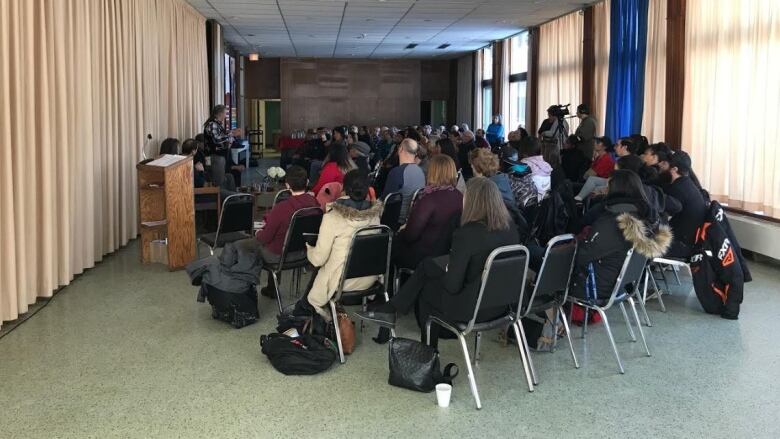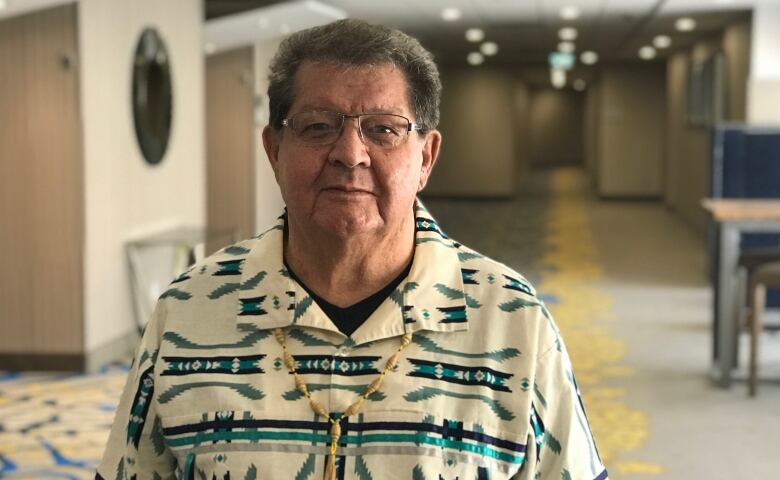Robinson-Huron Treaty case being discussed at University of Sudbury
Case is currently under appeal by the province of Ontario

A landmark ruling involving treaty annuities is being discussed at a university in Sudbury.
In December, 21 First Nations communities in northern Ontario won a court case against the federal and provincial governments.
Beneficiaries of the Robinson-Huron Treaty have not had their annuities raised in over 140 years. Since 1874, they have been getting $4 each annually.
The province of Ontario is appealing the decision, but is entering into settlement negotiations with Ottawa and the First Nations involved in the case.
On Monday, the University of Sudbury hosted a panel discussion on the case.
"This community is on Robinson-Huron Treaty territory, we feel it's really important to contribute to that conversation," Sarah Rice, director of the Indigenous portfolio at the university said.
Mike Restoule, chair of the Robinson Huron Treaty Litigation Fund, took part in the event. He says the judge's ruling is a victory, but says he has concerns that an appeal has been filed.

"What I am hopeful of is that Ontario will come to the negotiations table with a full purpose to try and settle rather than just go through the process," he said.
"I have a bit of mixed emotions in terms of Ontario's appeal. I'm worried about it, but at the same time I believe that Justice Hennessy's ruling is quite strong and the possibility of it being overturned in my view is remote."
Determining compensation
Stephen O'Neill, a retired judge also took part in the panel. He's now an associate lawyer with Nahwegahbow-Corbiere law firm and was consulted throughout the hearings.
He says if all sides can't come up with a fair amount for compensation, a judge will determine that figure.
"Ultimately it's about that fair share of the net crown resource revenue from the treaty territories," he said.
"This may be the most important treaty decision of northern Ontario if not Ontario. It could have powerful impacts across Canada."
Restoule says he's not sure what that new number will be, from the current $4 per year.
"After determining what the revenues might have been over the years, we're hopeful that a bargain can be reached about a share of those lost revenues," he said.
"And on a go-forward basis, hopefully that we would be able to settle on a formula or process to determine what shares of the revenue in the territory the First Nations might achieve."












_(720p).jpg)


 OFFICIAL HD MUSIC VIDEO.jpg)
.jpg)



























































































